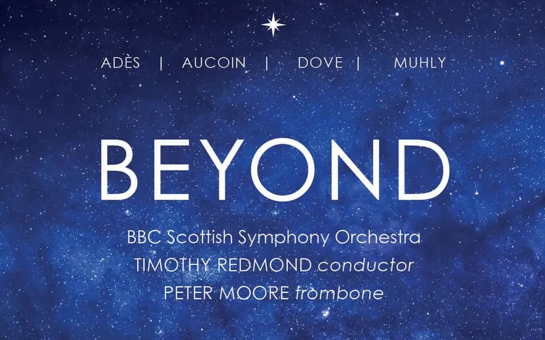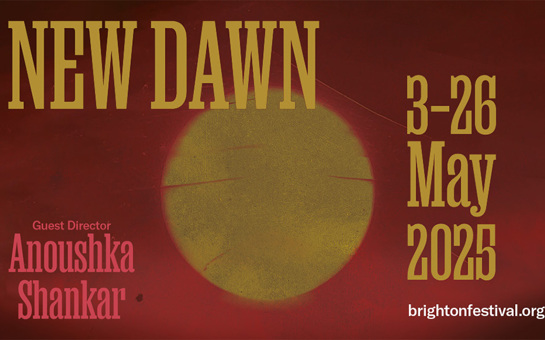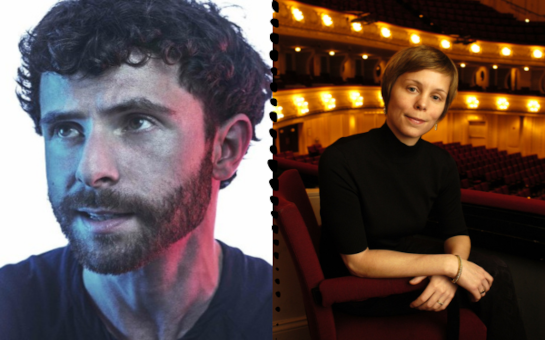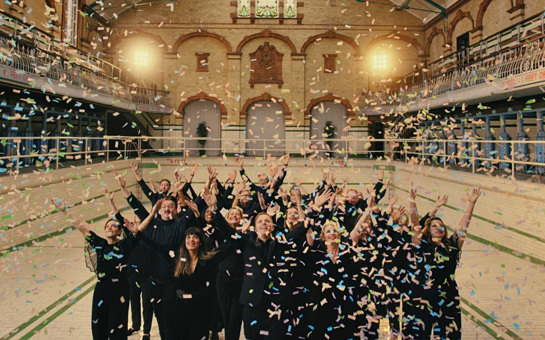Earth Day | Operas and Staged Works
19th April 2018

sunrise over the ocean, NASA/Reid Wiseman (2014)
Earth and the Great Weather (1993; 1 hour, 30 minutes)
John Luther Adams
Libretto: the composer
Earth and the Great Weather is a journey through the physical, cultural, and spiritual landscapes of the Arctic, in music, language, and sound. The text (in English, Iñupiaq, Gwich'in, and Latin) is composed of the names of places, plants, weather, and the seasons of the Arctic, as well as vocalise. Three drum quartets are interspersed throughout the work and are inspired by the elemental power of natural forces in the Arctic and by the ecstatic energy of Alaska Native drumming and dancing.
Listen: Complete on New World Records 80459
Peruse: Full score
Second Nature (2015; 1 hour)
Matthew Aucoin
Libretto: the composer
Set in a fictional future when humans have retreated from nature because of the deteriorating environment, Second Nature tells the story of two inquisitive and courageous youths who decide to leave the safety of their artificial habitat and work to heal the planet.
Watch: Complete by Music Academy of the West | Interview
Peruse: Full score
La Hija de Rappaccini (1983; 1 hour, 45 minutes)
Daniel Catán
Libretto: (Spanish) Juan Tovar, based on the play by Octavio Paz and the short story by Nathaniel Hawthorne
Catán's setting of La Hija de Rappaccini (Rappaccini's Daughter), set during the Italian Renaissance, is a multi-layered story that deals not only with the scientific struggle of good and evil, but also with the blurring gray lines created as both good and evil merge. The composer writes, 'Modern science faces enormous ethical dilemmas when it ventures into areas such as cloning and genetic engineering. A modern geneticist can eradicate certain characteristics of, say, corn, by manipulating its genetic structure. Should he be allowed to do similar things with human beings? How far should he go?'
Listen: Highlights on Naxos 8.557034
Peruse: Vocal score | Act I full score | Act II full score | Full score reduced orchestration
Under the Double Moon (1989; 1 hour, 45 minutes)
Anthony Davis
Libretto: Deborah Atherton
Under the Double Moon takes place in the far future on the planet Undine, a water-world of vast oceans. An eternally youthful Empress rules a federation of loosely linked planet-nations from the Imperial Planet, the largest of the Empire’s Seven Worlds. It is the time of the yearly Fish Festival when the double moons merge and the Undians — both human and Gaxulta (a being transformed to live under water) — take a few days to celebrate their oceanic livelihood. Personalities conflict, telepathic powers are abused, and danger looms. Life beneath the water offers an attractive freedom, however not without a price: it represents the loss of family, friends, and the effects of civilization.
Peruse: Act I full score | Act II full score
The Making of the Representative of Planet 8 (1988; 3 hours)
Philip Glass
Libretto: Doris Lessing, based on her novel
As The Making of the Representative Planet 8 begins, Planet 8 is a green, Eden-like world. A cosmological accident brings a disastrous change of climate, an ice age that is extinguishing all life. Guided by the overlords from Canopus, an extraterrestrial civilization, the people of Planet 8 learn to accept their individual deaths and evolve into a collective universal soul (the 'Representative' of the title) that survives physical destruction.
Shelter (2005; 1 hour, 3 minutes)
Michael Gordon, David Lang, Julia Wolfe
Libretto: Deborah Artman
Shelter taps into the various meanings and connotations of the word 'shelter', from basic protection from the elements to the building of an American home. The librettist notes that Shelter 'evokes the power and threat of nature, the soaring frontier promise contained in the framing of a new house, the pure aesthetic beauty of blueprints, the sweet architecture of sound, and the uneasy vulnerability that underlies even the safety of our sleep'.
Listen: Complete on Cantaloupe Music CA21083
Watch: Interview
Peruse: Full score
Dawnpath (1977; 50 minutes)
Nicola LeFanu
Libretto: the composer, from American Indian sources
Dawnpath is based on two American Indian myths: that all creation sprang from a single song, and that the first beings on earth were given the choice of living forever in darkness or of dying that night might always give way today.
Peruse: Composer essay




